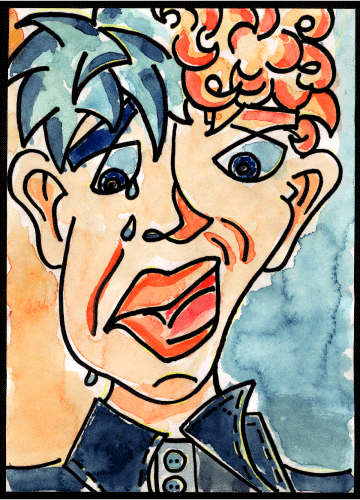Life is not without its ups and downs. Just about every day we are faced with instances that add to our bad mood, and general feelings of agitation. It not really often happens to us and makes us feel this way, it is how we react to these situations and how quickly we can get back to ourselves again. If you find that you can’t get over certain mood no matter how hard you try, you may have a mood disorder.
Identify Mood Disorders
Many mood disorders fall into the following categories. Once you can identify the condition, you can seek the proper treatment for mood disorders.
1. Varieties of Mood Disorders
- Depression: If you have lost interest in most of your usual activities, feel hopeless, or feel sad
for no particular reason and it has lasted 2 weeks or longer, you may be experiencing major depression. - Dysthymia: This category has many of the same symptoms of depression but it lasts in long-term.
- Bipolar: Just as it sounds, a person with bipolar disorder alternates from bouts of depression to feelings of euphoria.
- Additional substance abuse: Depression could also result as a side effect of medications, alcoholism, drugs, and toxins.
- Other health issues: There are some health conditions that may lead you feeling mood disorder, including chronic illnesses, cancer, and unexpected injuries.
2. Symptoms for Diagnoses
The symptoms for many mood disorders break down into two different types: mental and physical. Even though these symptoms are common they do not all occur for everyone.
|
Symptoms of depression |
|
|
Mentally |
|
|
Physically |
|
|
Symptoms of mania |
|
|
Mentally |
|
|
Physically |
|
Treatments For Mood Disorders
1. Daily Care
There is treatment for mood disorders that you can begin to implement on a daily basis to start.
- Begin taking partin more social activities, such as common hobby club, reading corner
- Make sure to get a good night’s sleep
- Exercise every day, like jogging, swimming
- Find someone you trust to discuss your problems with
In addition, you may want to try a few alternative treatments, such as:
- Yoga
- Massage therapy
- Acupuncture
2. Specialized Treatment
If it seems that nothing is changing, you may want to seek out an expert in the field who is knowledgeable regarding treatment for mood disorders.
Medications
There are a host of medications that are usually dispensed to treat depression. These drugs are called antidepressants and their job is to restore the neurotransmitters that have a part in the depressive behavior (the neurotransmitters include dopamine, serotonin, and norepinephrine). The following medications are regularly prescribed antidepressants: Paxil, Zoloft, Lexapro, Prozac, and Celexa. Drugs used for bipolar disorder include Lamictal, Lithium, Trileptal, and Depakote.
In addition, there are other antidepressants that may help: Cymbalta, Effexor, and Wellbutrin. Antipsychotic medications that are used as treatments for mood disorders include Abilify, Zyprexa, Clorazil, Geodon, and Risperdal.
Cognitive Behavioral Therapy
Your therapist may want to try using cognitive behavioral therapy, or CBT. CBT joins behavioral theories with recognized cognitive theories together and applies them to your actions and behaviors. It can help with the following behaviors:
- Exaggerating certain circumstances
- Thinking in terms of black and white
- Always thinking that bad things are going to happen
- Dismissing the positive side of any situation
- Emotionally drwaing a snap conclusion
Putting all situations together in general terms and putting a negative spin on all of them
CBT treatments are effective for a number of disorders including depression and anxiety. They could also help those with bipolar disorder when used in conjunction with medication.
New Technologies
If any or all of the above do not work for you, ask your doctor about some of the newer treatments available, such as electroconvulsive therapy (ECT) and transcranial magnetic stimulation (TMS)
- Electroconvulsive therapy is actually not new but it is improved. The procedure consists of the administration of electric currents (small ones used with a general anesthetic) in order to generate a seizure. It is thought that the seizures create a change in the chemistry of the brain and help many types of mood disorders.
- Transcranial magnetic stimulation is used when all else fails when treating mood disorders. The treatment consists of the placement of an electromagnetic coil on your scalp of your forehead. Magnetic pulses stimulate the nerve cells in the part of your brain that handle depression and your moods. It has proven to improve moods and cut down on depression.
